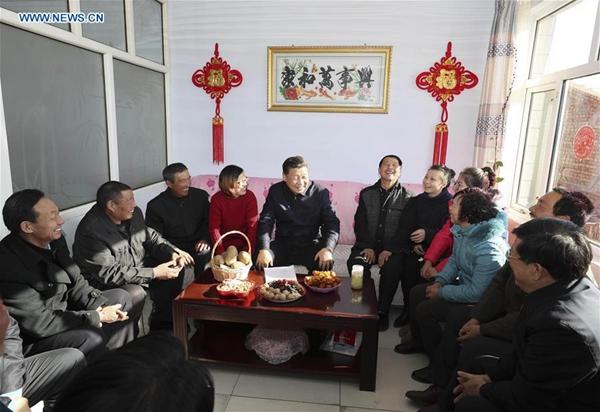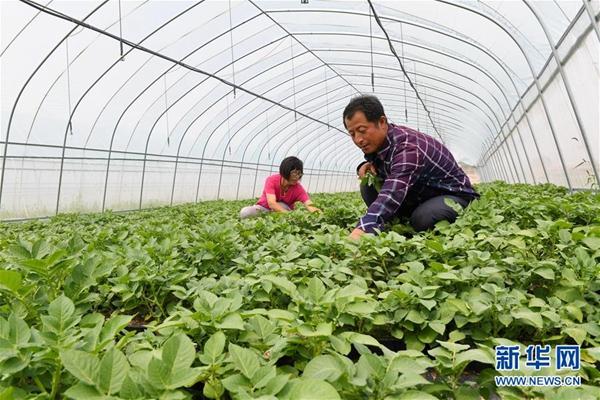


About 10 kilometers northeast of downtown Zhangbei county in northern Hebei province lies Desheng village. In Chinese, "Dengsheng" rhymes with the word "success." But for many years, the village failed to end poverty.
Due to its barren land and harsh climate, the area had unstable and usually poor agricultural production. In 2013, more than half of 413 households in the village lived in poverty. Women were not likely to marry young men in the poor village, forcing many to leave.
Ye Runbing, Party secretary of Desheng, said the young people went to big cities as migrant workers, while others either struggled to get by or lived on subsistence allowances.
However, Desheng went through transformative changes over the past three years. Dilapidated mud-brick homes were replaced with new two-story houses, and new asphalt roads were paved linking the isolated village with modern prosperity.
By 2019, the per capita disposable income in the village reached around 13,700 yuan (US$$2,027.6), almost tripling the figure in 2014.
It all started after a visit by President Xi Jinping before the 2017 Chinese New Year. On Jan. 24 that year, Xi met with several impoverished families, asked about their living conditions, and exchanged ideas on ways of ending poverty.

He stressed the importance of precision in the battle against poverty, saying that poverty alleviation should focus on targeted people and industries, and use the right tools to produce results.
In view of its conditions and resources, Desheng village decided on developing mini potato farming, photovoltaic power generation, and rural tourism.
With a relatively high altitude, rich sunshine, and wide range of temperature variation, the village is ideal for planting potatoes. But for years, potato revenue has been low.
With the help of the poverty alleviation working group, Desheng founded a cooperative that built 280 greenhouses, each covering 400 square meters. The greenhouses only charged each household 1,000 yuan annually.

"We also worked with a local seeding company that introduced the more profitable mini potato breed to us and sent farming specialist to the village regularly to check on our productions," Ye said.
Impoverished families were given priority to rent the greenhouses. "Seventy thousand seedlings can be planted in each greenhouse with each growing two to three potatoes," said Li Yanping, who rented three greenhouses. "As each potato sells 0.3 to 0.5 yuan, the net profit of each greenhouse could be around 25,000 yuan after deducting other costs."
Villagers in Desheng also registered the "Desheng potato" trademark and signed marketing deals with internet platforms. This helped the village to form a complete industry chain from potato seedling to storage.
